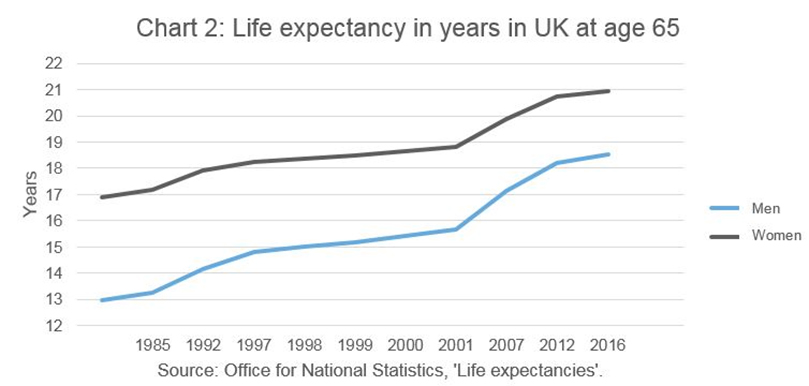Intergenerational wealth transfer
What is generational wealth and why is it important?
Research suggests we're on the cusp of something called 'the Great Wealth Transfer.' As the name suggests, this will mean an unprecedented transference of wealth from one generation to another. Here's everything you need to know.
What is 'the Great Wealth Transfer'?
Huge sums of wealth are transferred to beneficiaries every year. In the case of inheritance after death or a gift from one generation to another, we call this a generational wealth transfer.
Over the last few years, we've seen a rise in headlines about something called 'the Great Wealth Transfer.' This comes off the back of recent research about exactly how much money is expected to be passed on over the coming three decades.
All reports have reached the same conclusion: we are on the brink of a vast shift in assets. By 2027, it is expected that wealth transfers will nearly double from the current level of £69 billion, to £115 billion every year1. The Great Wealth Transfer of the 21st century (GWT) is expected to bring about a total overhaul to the way current financial advice practices work.
Two things to know about generational wealth transfer
1. Baby boomers have amassed large sums of wealth
Baby boomers (those now aged between 53 and 72), benefitted the most from increases in property prices and rising stock markets2. Low interest rates and quantitative easing have also caused fixed-term final salary pensions to soar in value, while Defined Benefit transfers have allowed people to forfeit their final salary scheme and receive cash value instead.
2. Life expectancy has increased
Life expectancy in the UK at age 65 has significantly risen since 1984 – from 13.0 to 18.0 years for males and from 16.9 to 20.7 years for females (see below chart). Living longer means that our senior community are holding onto their assets for longer - and reaping the rewards.

How to prepare for the great wealth transfer
A whopping £1 trillion will move hands between now and 20273. Children, grandchildren and others are going to receive large bulk sums, all in one go. With this change in asset ownership comes great opportunity for advisers: a new set of clients, a new set of objectives. Our survey revealed that 64% of high-net-worth individuals under 40 are considering or plan to consider investment returns as their primary source of income within the next five years.
However, many benefactors haven't fully thought about, or made thorough plans, for even the most basic generational wealth transfer. Only 26% of people have a full strategy in place to transfer their wealth to the next generation, while 1 in 3 indicate they have done nothing at all to prepare for passing on wealth to the next generation4. Indeed, limiting one's wealth to full intergenerational transfer on death may not be the most sensible thing to do. The inheritance tax burden alone should warrant some pre-death distribution.
In addition, as clients age and approach the end of life, the number of so-called 'vulnerable clients' will increase, bringing with them a whole host of new needs and challenges.
The importance of advisers in the transfer of generational wealth is obvious. Engaging with inheritors today will give them (and you) a much-needed head start – may that be 'the Sandwich Generation' (those who support both their children and their parents) or the younger generations (those between 18-35). Future clients will have different objectives, such as university funds or house deposits. The best way to get ahead is to encourage benefactors to engage with the family as a whole, and plan for how these objectives can be satisfied now, rather than on death.
Asset and client retention
Current client retention rates following asset-transition after death are disappointing and indicate that soon-to-be inheritors are unlikely to stick with the same adviser as their parents/grandparents. Indeed, According to Victor Preisser, co-founder of the Institute for Preparing Heirs.5 Over 90% of heirs promptly change advisers when they receive their inheritances, and 70% of families lose control of their assets when an estate is transitioned to the next generation."
Action for advisers: Re-address client segmentation plans
This shift in assets is being seen by many advisers in their client banks. It can either be viewed as an opportunity to attract new clients and retain existing ones; or, it could be a risk if there is no strategy to capitalise on this trend.
The bottom line
At Russell Investments, we know that just around the corner, the Great Wealth Transfer will bring about great change. But it isn't too late. As advisers prepare for client reviews, cash flow modelling can often be a timely and tedious task. Our efficient cash flow modelling tool is one of the few tools that can be used in under five minutes, enabling advisers to save a significant amount of time to prioritise and customise their client's needs. Explore our range of exclusive adviser tools here.
Any opinion expressed is that of Russell Investments, is not a statement of fact, is subject to change and does not constitute investment advice.
1 Kings Court trust, 'Passing on the Pounds – The rise of the UK's inheritance economy'. 2017, p. 3.
2 The Office for National Statistics, 'The UK national balance sheet: 2017 estimates' 2017.
3 Kings Court trust, 'Passing on the Pounds – The rise of the UK's inheritance economy'. 2017, p. 10.
4 Royal Bank of Canada, 'Wealth Transfer Report 2017'. 2017, p. 3.
5 http://www.wealthmanagement.com/data-amp-tools/retaining-heirs-wealthy-clients